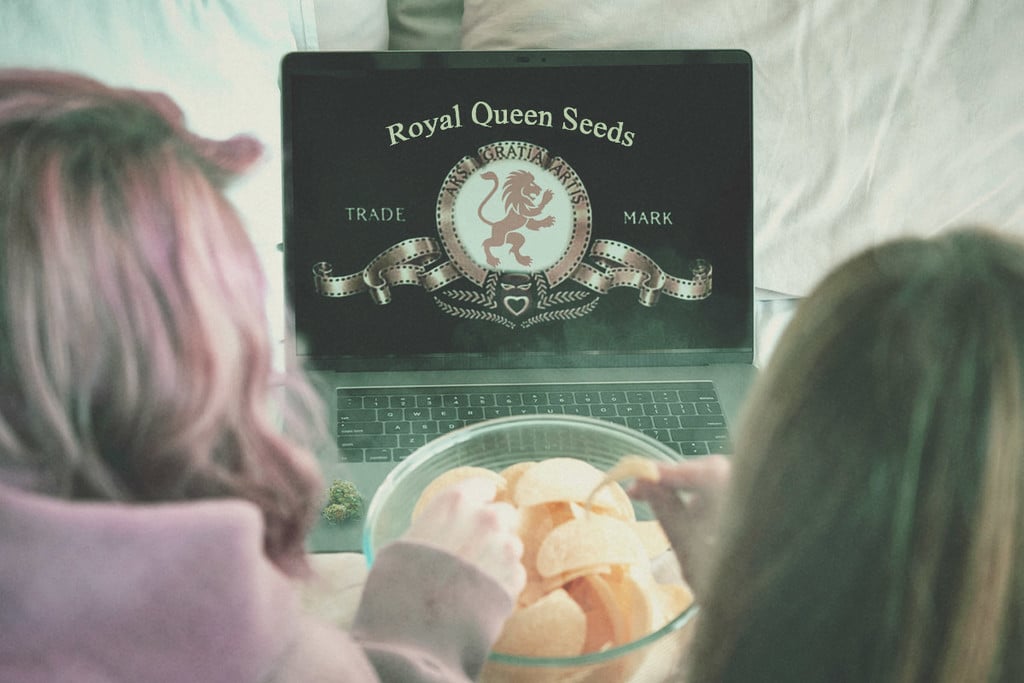.
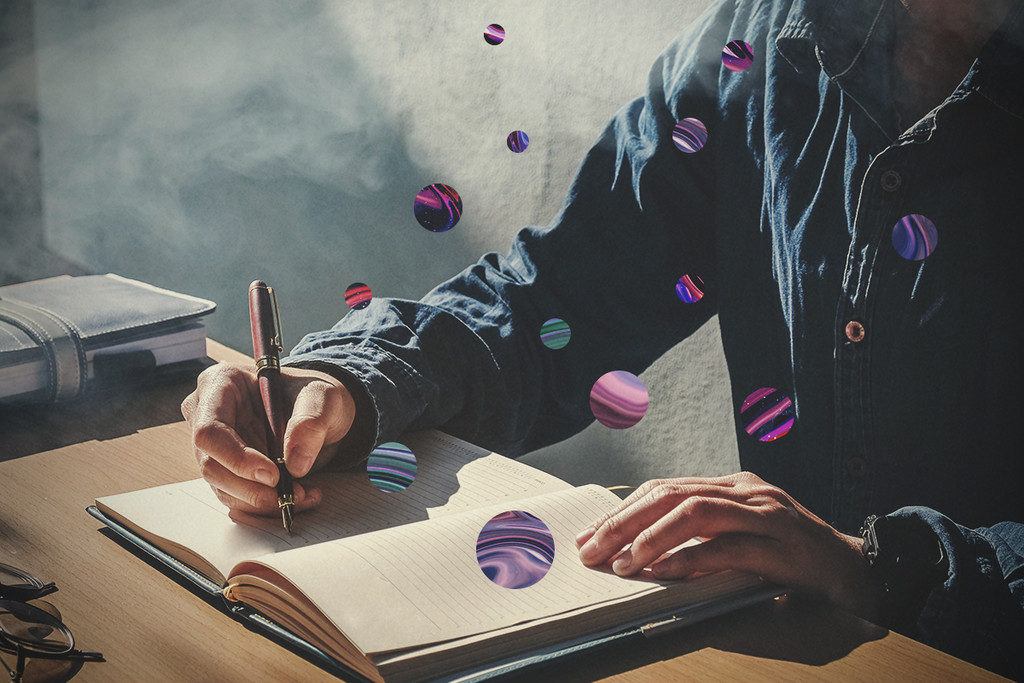
Why You Should Journal While High
Many people combine cannabis and journaling to achieve a goal, become more creative, or deal with intense emotions. There is no right way to journal, much less while under the influence of cannabis, but this article gives an overview of the topic, as well as suggestions for starting your own cannabis-inspired writing journey.
Contents:
“Getting high” on cannabis is a term that covers a lot of ground. When you smoke or consume cannabis with THC, your mind and body relax—that is for sure. But little is known about the overall impact of cannabis on creativity, as it has not been formally studied yet, in part because the entire issue is a bit abstract.
The relationship between getting high and creativity is closely linked; and indeed, many people choose to imbibe THC before they create or innovate—whether that’s writing a poem, playing music, painting a picture, going for a run, or, in the case of this article, journaling.
While there is a lot we don’t know about cannabis and creativity, when you are “high”, the mind appears to make different connections than it generally does when you are not.
Below, we examine what it means to feel high in the first place, and how this phenomenon may kindle the creativity and connections desired when journaling. From here, we’ll offer advice on getting the most out of your high journaling experience.
What Does It Mean to Be High on Cannabis?
The biochemical process of being high generally hinges on the cannabinoid THC and its relationship with CB1 receptors in the body. As a CB1 agonist, THC binds to these receptors with an even greater affinity than internally produced compounds. As a result, the cannabinoid gives rise to a psychotropic experience generally defined by periods of bliss and relaxation—similar to that experienced with the “runner’s high” phenomenon.
Now, the range of effects and sensations resulting from smoking or otherwise consuming cannabis depend on more than just THC. The presence of other cannabinoids, terpenes, not to mention the unique physiology of the individual, all play a role in what a high feels like from person to person. Experiences can range from the euphoric, blissful, and social to the contemplative, sleepy, and hungry.
There is, in other words, no one way to describe being high. Still, one thing many creatives agree on is that consuming cannabis gives rise to a type of thinking that lends itself to generating novel ideas and unique thought patterns.
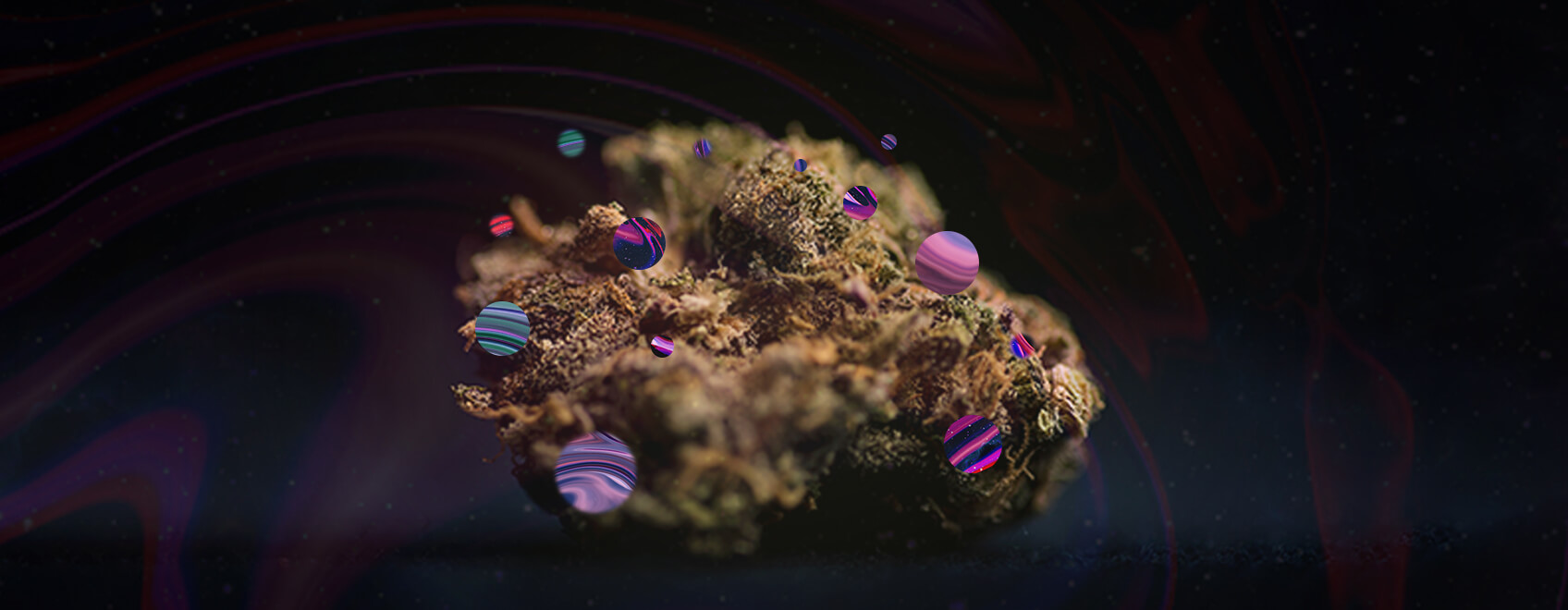
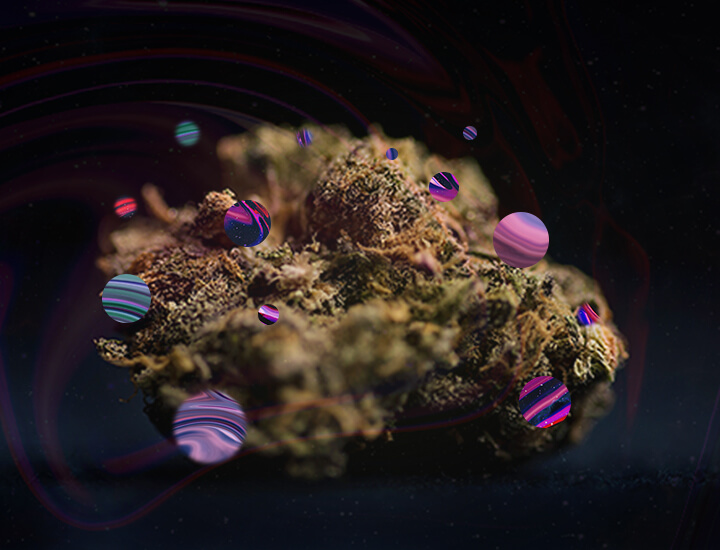
Benefits of Journaling
Let’s connect this to the practice of journaling. Journaling is a process of jotting down thoughts, happenings, or ideas on a regular basis. You could think of it as keeping a regular diary. However, many people journal to encourage themselves to achieve their goals. It is easier to keep track of progress and growth when you continue to write down what you have achieved, or plan to, and how.
Journaling is also a way to gain self-confidence, improve your writing and communication skills, and to reduce stress and anxiety.
The process is often recommended to people who have gone through traumatic experiences, who are dealing with weight issues or deal with addiction, or are looking to find inspiration.
Lastly, of course, journaling is a way of chronicling your life that also aids in strengthening memory. If you write down the day’s events, you must think about them, analyze them, and put them in place.
Possibilities of Journaling While High
Journaling while high can offer several intriguing possibilities. When under the influence of THC, thoughts may be more intense, more focused, or divergent (i.e. unstructured and unrestricted).
The act itself is easy—you blaze up before sitting down to write. But those who use cannabis to journal regularly often have more of a ritual connected to this process.
Creativity is a trait that, as far as we know, is unique to humans. Our brains allow us to morph abstract ideas into physical reality, even if “only” on the written page. Cannabis seems to aid that creative process by setting the brain free from everyday worry and allowing it to take new, often divergent lines of thought. This does not end when the high is over. Many people, and not just “writers” or creatives, have depended on cannabis to help them change direction, think about things differently, or solve problems. The Chinese used cannabis far back as 2,700 BCE to “cure” absentmindedness.
What is clear is that cannabis helps the mind shift gears from the logical, process-oriented world into one where things are a bit more abstract.
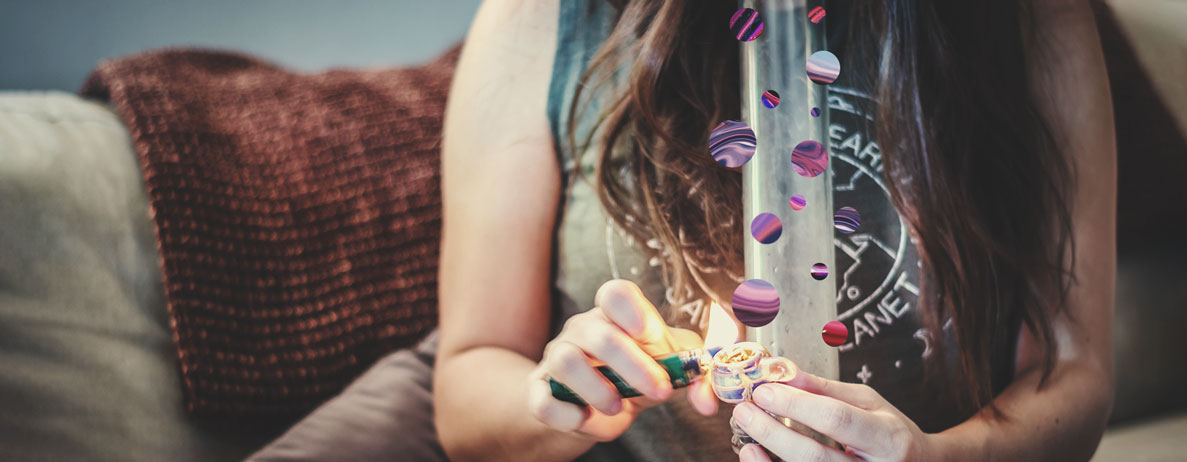
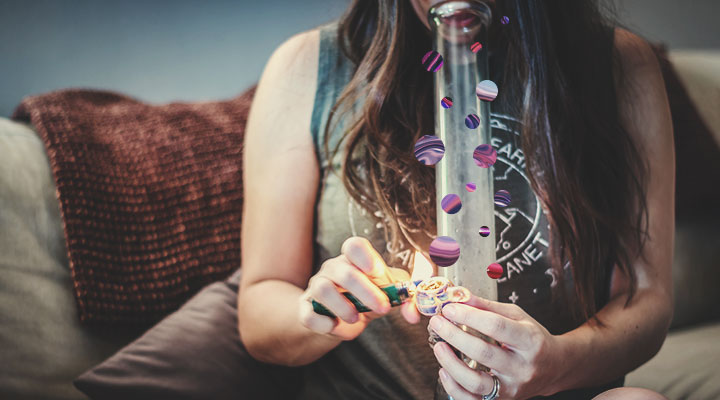
How to Journal While High
To begin channelling your high into a rewarding journaling session, it’s best to set up a process or schedule to get you in the right mood and state of mind.
Pick a time of day when you can be alone for at least ten minutes to half an hour. If writing in a special book feels good to you, get one. If you have a favorite pen or writing instrument, make sure that it stays with your diary.
If you like to write on the computer, create a special folder for your journal entries, and tag them by day, month, and year.
People also often like to listen to music as they write, and when they are high. There is no particular kind of music that enhances journaling, although trying to write while listening to music with a lot of lyrics can be distracting for some. Classical, trance, or other music that stimulates brain waves is often a good choice, but it is entirely your choice.
On the contrary, a soundtrack of natural sounds, like rushing water, wind blowing, and birds chirping may be more your speed. With streaming media, finding the right musical vibe is as easy as a quick YouTube or Spotify search.
Experimenting with different cannabis strains is also part of the process. Many people who journal while high are seeking a more uplifting and cerebral high offered by strains with invigorating terpenes alongside THC. For this reason, we suggest a strain like Mimosa, which is often used by creatives seeking a boost of inspiration.
Types of High Journaling
There are many different types of journaling. The easiest to get started with is a kind of diary of significant events that occur. Through the filter of cannabis, these can take on less of a linear significance. You could also keep lists or write down your happy thoughts. Some people write their next day's to-do lists; others write down inspirational or funny quotes. Others still use it as an opportunity to write abstract poetry and prose.
The point is that you engage your mind, and further, put your thoughts down on paper. Sometimes, if you do not feel like writing, you can also go back and read previous journal entries for inspiration.
High Journaling to Achieve Goals
Many people use journaling to help them achieve their goals. However, these too may change under the influence of cannabis.
If you are using cannabis journaling to help you get through a block, what is it you are facing, exactly? Sometimes identifying and recording the actual issue offers a good deal of clarity in itself, and sets a precedent for you to recognize and try to get over this hurdle. Even if it starts off as writing down your name repeatedly for a while, your brain, particularly aided by cannabis, will find its own way.
The important thing to remember is that there are no limits, no rules, and, if you want, not even any grammar.
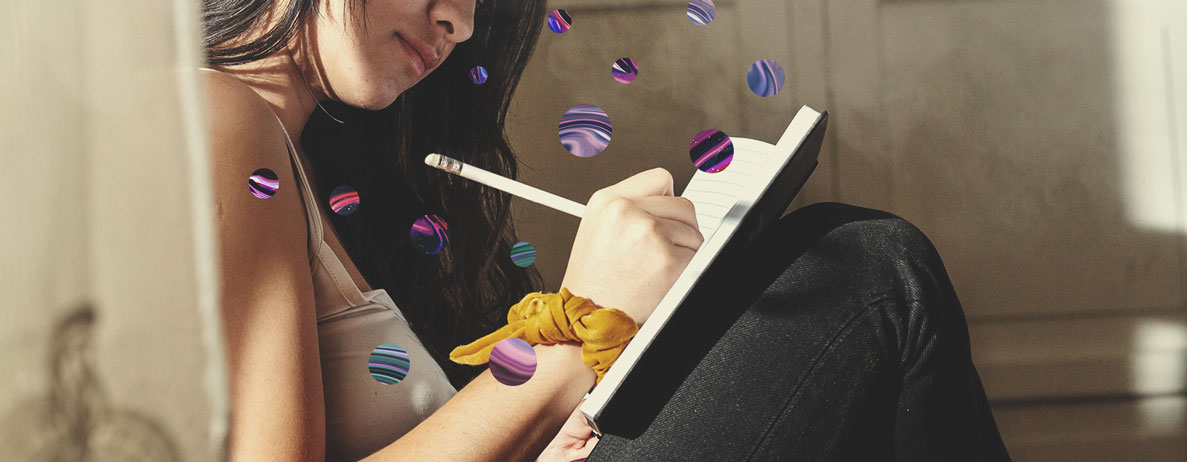
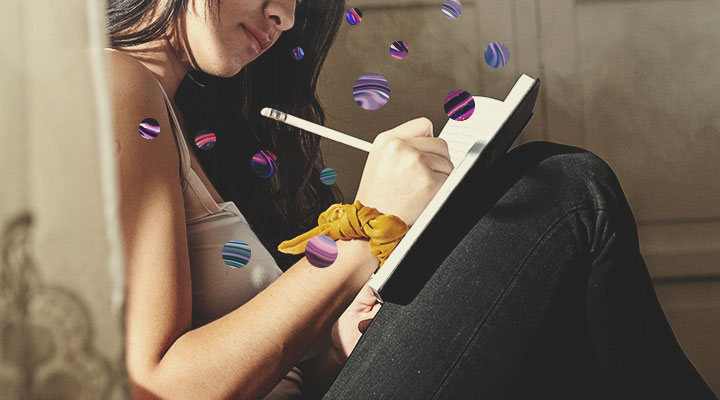
Tips for Journaling While High
There is no right or wrong way to journal while high. However, it helps if you are in a place that is secure and self-contained. Beyond the smell of the smoked herb, you might also try burning a scented candle or incense. Maybe put your purring cat on your lap or snuggle under a favorite blanket. Writers use all sorts of tips to get the process going.
Whatever your process, however, be sure to stick with what feels good, and ultimately works. When you look back, even over a few weeks or months, you might be surprised at what you achieve.
Possible Starting Ideas
The adage “write what you know”, and what is right in front of you, applies here too. If you are stuck, perhaps start by writing down how cannabis makes you feel. Do you feel happy, or freed from tension? Do you like the way the sun (or moon) is shining in your window? Do you feel cosy, or is your mind racing over distant horizons?
You might also start to write about what is bothering you, or what your aspirations are.
Sometimes people sit down to write letters to people they love, or hate, or cannot fathom. Even if you never send this letter, it will allow you to process intense thoughts that motivated you to go there in the first place.
You may also feel that you are not really into “writing”, but would rather doodle. Do it. Maybe mix it up a bit. You are creating a journal for yourself, not anybody else.
The point is that it really does not matter where you start—it’s the journey that matters.
On the cannabis front, of course, it is fun to experiment. However, if you find that you just imbibed a strain that induces couchlock rather than creativity, put it aside for another time.
Weed and Journaling: A Match Made in Heaven?
Even if you started this process with one idea in mind, chances are it will change over time if you stick with it. You may notice that your feelings toward another person or situation change. You could find that this process allows you to see the bigger picture when trying to make an important decision. It could be that journaling while high helps you clarify emotions. It will certainly be a way to track your development—whatever it is.
The bottom line is that journaling with the aid of weed helps you jump into the unfamiliar, the unknown, and even stimulates you to act (whatever that action might be). Your thinking will evolve into a different plane, let you tell your story, and help you achieve a surprising sense of accomplishment, even if the only person who ever reads what you create is you.




























